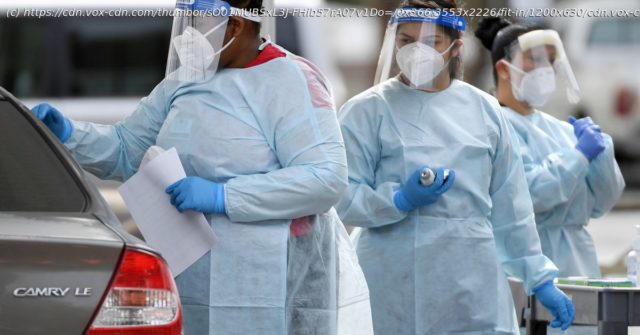The debate over how to allocate limited coronavirus tests, explained.
Testing is the sine qua non of resolving the Covid-19 coronavirus pandemic.
It’s essential to determining who has the virus, which can spread from people who may not exhibit any symptoms at all, sometimes for weeks. These unwitting spreaders are prolonging the pandemic, forcing the government to enact costly economic shutdowns. The way to relax these measures is to test people, sometimes repeatedly, and isolate the infected.
But since there still aren’t enough tests in the US to go around, who should be tested?
Current guidelines from the Centers for Disease Control and Prevention (CDC) put hospitalized patients with symptoms; health care workers and first responders with symptoms; and nursing home residents and prisoners at the top of the list — and people who don’t have any Covid-19 symptoms much lower.
However, some researchers say the focus right now should be on finding people with the virus who don’t have symptoms because they are driving new infections. People who are starting to experience fever, shortness of breath, and a loss of smell, they say, should not be tested and should be treated as if they are already infected.
It’s a debate that exposes the tension between treating individual patients and protecting the public at large. But it’s not a hypothetical; these are decisions that have to be made now. Experts estimate we should be deploying upward of millions of tests per day. Yet the United States is barely getting above 220,000 daily tests. And it’s forcing many health districts into the unfamiliar territory of rationing tests, forcing them to confront the prickly question of who does and who does not get swabbed.
The number of tests and how they’re deployed will shape the trajectory of this pandemic.
There are several different therapies for Covid-19 under investigation. Some, like remdesivir, are being used to treat patients under compassionate use guidelines or emergency use guidelines.
But right now, there isn’t a specific drug for Covid-19 for broad use, so a positive diagnostic test for the illness doesn’t change how most patients are treated. In other words, if you have symptoms, a diagnosis won’t affect how you’re treated by doctors.
In addition, by the time an infected person has symptoms like fever and breathing difficulty, the virus is often quite far into its replication cycle and may be in decline, so a diagnostic test may not even pick up the disease. And at that point, many of the symptoms stem from the body’s immune response to the virus, like inflammation and fever, rather than the direct damage from the virus itself.
France’s health minister Olivier Véran told the French broadcaster LCI on April 30 that testing people with symptoms wouldn’t have done much to control the pandemic.
“A test does not cure. A test doesn’t change the treatment. A test doesn’t change isolation [protocol],” he said. “If we had tested absolutely everyone, everyone with symptoms, we would have had more or less the same number of cases.”
Since it doesn’t make a difference in how patients are treated, Paul Romer, an economist at New York University, argues that testing such patients doesn’t make sense. Romer co-authored an article for the Atlantic with bioethicist Ezekiel Emanuel laying out his case for not testing patients with symptoms.
“To safely reopen closed businesses and revive American social life, we need to perform many more tests — and focus them on the people most likely to spread Covid-19, not sick patients,” wrote Romer and Emanuel.






